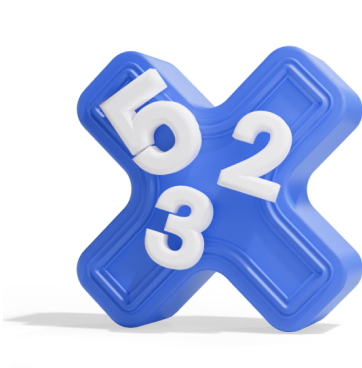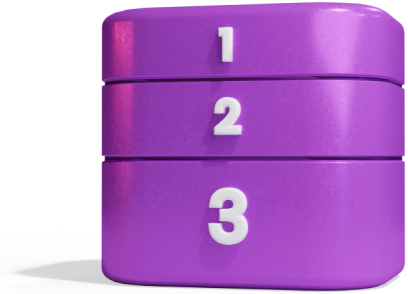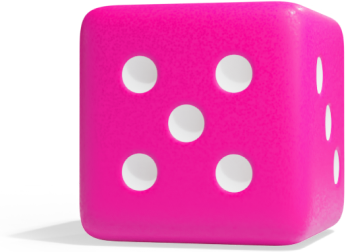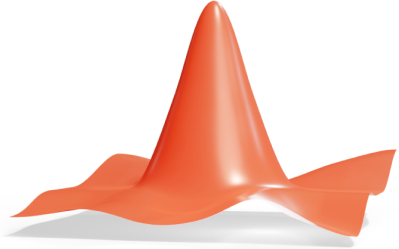
Improve Your Note-taking Skills

There are many factors involved in the learning process—such as taking notes. During a class, the teacher will go through many topics and a lot of information, understanding what is the most essential to jot down is crucial. In order to learn effectively, we will have to understand how our brain learns and work along with it to take good notes.
In short terms, our brains learn best with storytelling—using a narrative to explain things—so, whenever new stuff comes up that we want (or need) to learn, we would like to have it in our minds in a way that feels like story, regardless of how it is being taught to us. This is why taking notes is so important; it allows us to choose what information we want to keep and organize all the content we are learning in personalized way that will effectively stick to our minds.
So, suppose we are learning a new concept, like probability, and there is a lot of content to learn; of course, we would like to have all there is to know about the golden ratio in the back of our minds for the final exam, but there is simply too much information; just rewriting all of that content will definitely not work (not to mention memorizing it), so we will have to optimize our resources to improve our notes. In order to do so, we should ask ourselves some questions:
· What are the main concepts?
Always look for keywords; words that are mentioned over and over during class or in the textbooks should be highlighted and very clearly explained in your notes.
· What confuses me the most?
You should be very honest and ask yourself: Do I really understand this concept? Could I confidently explain this to somebody else and make myself clear? If you have at least a little doubt of it, then the answer is probably be no. Whenever this happens, you should definitely write it down somewhere. For example, assume that in order to learn about the golden ratio you had to read the definition of a ratio a thousand times to catch it; so you don’t have to struggle with it again, we recommend you highlight that word and include in your notes the things that helped you finally understand that concept; it might have been an example, a formula, or a situation it’s related to.
· Are there any classical examples I should remember?
New concepts often come with basic examples; you might want to include the examples that you feel that better represent the nature of the concept you are learning, so that whenever you are reading your notes, you can interactively study the concepts and make sure you feel confident about them.
· Are there any important formulas?
Formulas can sometimes be very confusing or sophisticated. No matter what the case is, formulas should be in your notes highlighted, in big letters and should be easy to read. Be careful, just throwing a bunch of symbols to your notes and making them look pretty is simply not enough; it is very important to include information about the formulas you are using, like in which situations it can be applied, what are the constraints of it, what each variable represent, and so on. It might also be a good idea to include examples or exercises where the formulas are applied.
· Is there any information that is not very useful?
You will often find that there is a lot of information surrounding a topic (depending on how deep you get into it). Make sure to understand the scope of your study so you don’t include any unnecessary information and waste time on it. Some textbooks include information as fun facts, but simply never use them; if you find it interesting or useful you may include it in your notes, but don’t put too much effort on it, since it could actually impact negatively in your study.
Once you have an idea of what content will be part of your notes, it’s time to organize it. Now is a good time to remember that our brains learn best with storytelling, so we recommend to stick to that idea while taking notes; reading your notes should feel like somebody is showing useful information to you in a comprehensive and intuitive manner. Here are some tips you might find useful for this purpose:
· Respect the order.
Just like when telling a story we need to introduce the characters and describe the setting before diving into the plot, when taking notes it is crucial that the concepts introduced have a coherent order of appearance. Make sure you throw in the first part of your notes all the ingredients you will need before introducing more complicated concepts.
· Talk to yourself in your notes.
Is a definition not very clear? You have to be more careful with a step when solving an exercise? You feel like you have to ask the teacher about a concept? Write all that down as a reminder to yourself. You might even want to write some things with huge letters so you don’t miss them; it is all about making things easier for yourself.
· Use short sentences.
Don’t write all the information exactly as it appears in the textbooks or as mentioned in class, synthesize it, be straightforward; the less you write, the easier it will be to read it.
· Don’t over synthesize.
As opposed to the previous point, synthesizing too much could make the reading confusing and misleading. Just make sure there is everything you need to understand the main concepts.
· Notes are meant to be read by you.
Explanations in textbooks and in class are given in a formal setting, but you are not obligated to do so in your notes. We encourage you to use words that you feel confident using as long as they don’t replace keywords or be misleading. Using your own language will make your notes easier to understand.
· Use symbols.
If there is a fact that is very frequently used throughout the subject, it might be a good idea to, for example, add and exclamation mark next to it, or if during an exercise there is a step that is not very clear, you could add a question mark. Any symbols that feel necessary and which meaning you know you can remember will work.
· Readability vs. Prettiness.
Don’t put too much effort on making your notes look pretty by using a lot of colors, drawings, and fonts; too much decorations might affect the readability. Your priority should be that your notes are easy to read and understand, sometimes a simple and sober format makes things easier to read. On the other hand, don’t just write plain text, since it will make your notes hard to follow up; visual cues are recommended to improve the readability of your notes.
Are you curious on different note-taking methods? We have written about that as well!

















